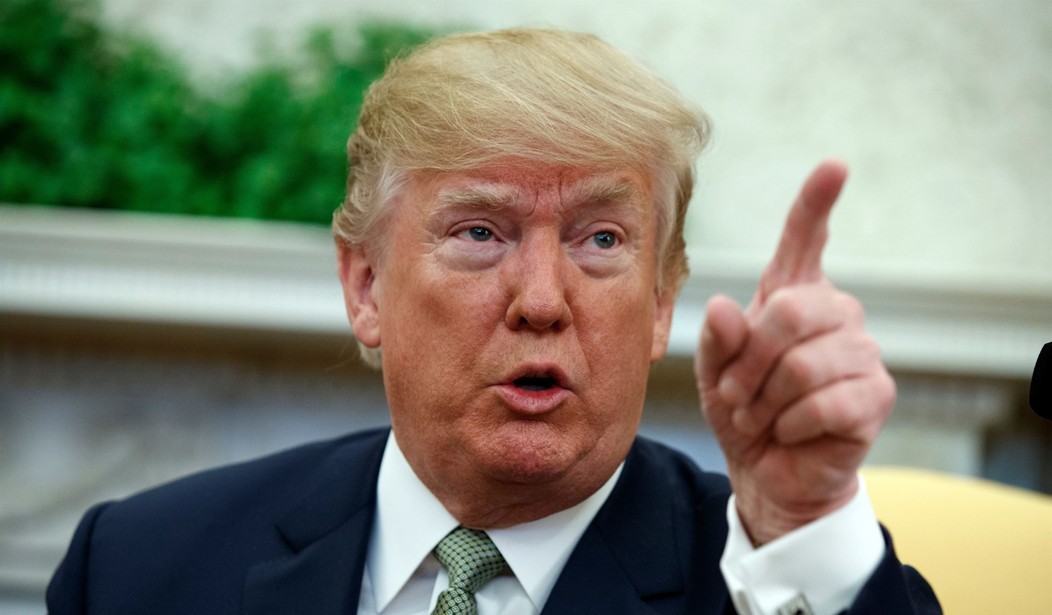Editor's Note: This week's column is co-written by James Carter.
The White House is seriously considering a strategy to cancel tens of billions of dollars of wasteful spending in the $1.3 trillion budget signed by President Donald Trump last month.
It's a great idea, and Republicans should welcome a high-stakes budget showdown with congressional Democrats, given the unpopularity of the omnibus budget. Trump has a potent tool at his disposal to not spend money.
It is called rescission authority -- a power created by the Congressional Budget and Impoundment Control Act of 1974.
Here's how it works: The president submits a proposal to cancel unnecessary funds. Both chambers of Congress must affirmatively agree to the proposal within 45 days; otherwise, the funds must be spent as appropriated. Because rescission requires affirmative consent from Congress, the House or Senate can ignore the request without a vote.
Ronald Reagan used rescissions to save billions of dollars. Over his eight years in office, Reagan proposed 596 rescissions, totaling $43 billion. Congress ultimately approved 213 of Reagan's rescissions, for a savings of $16 billion -- or roughly $34 billion after adjusting for inflation.
Sadly, in the years since Reagan left office, Congress has approved less than $6 billion worth of additional rescissions. According to the Government Accountability Office, no president has submitted a rescission proposal since fiscal 2000, and Congress hasn't approved one since fiscal 1999.
Recommended
Trump should revive the rescission process.
The beauty of this approach is that Senate Minority Leader Chuck Schumer, who demanded much of this extra spending, would not be able to stop a rescission, as long as Republicans stood together. Our research on the fine print of the law shows that the Congressional Budget and Impoundment Control Act of 1974 limits debate in the Senate "on any rescission bill or impoundment resolution, and all amendments thereto (in the case of a rescission bill) and debatable motions and appeals in connection therewith ... to not more than 10 hours."
This means that Schumer and the Democrats could delay a vote on a rescission but couldn't prevent it. At some point, the debate would end, and the Senate can approve a rescission bill with 51 votes. That's how many votes Republicans now have.
But would Republicans stick together? Some Senate GOP appropriators are nervous about revisiting the budget -- ugly as it is. Many of them like all the extra pork just as much as Democrats do. Schumer is screaming that this would break the budget deal they reached earlier this year with Trump. Yes, a budget deal to break the bank!
Trump could use the rescission to save hundreds of billions of dollars on wasteful urban transit projects with few actual riders. He could also cancel spending for the Gateway Tunnel in New York City -- a tunnel so expensive that New Yorkers who might actually use it have announced they have no interest in paying for it themselves.
This would also set up an excruciatingly tough vote for vulnerable Senate Democrats in West Virginia, Indiana, Montana and North Dakota -- all of whom tell their voters they are fiscal conservative debt hawks. Well, we will see.
For Trump to win here, he would have to do what Reagan did: take his case for fiscal solvency directly to the American people. Voters are fully aware of the dangers of a $21 trillion national debt that grows by $1 trillion every year. There's little downside in running against the spendaholics in Congress. If the big spenders in Congress vote to save the pork and the waste, he can make an even stronger case to the American people as to why the president must have a line-item veto.
























Join the conversation as a VIP Member